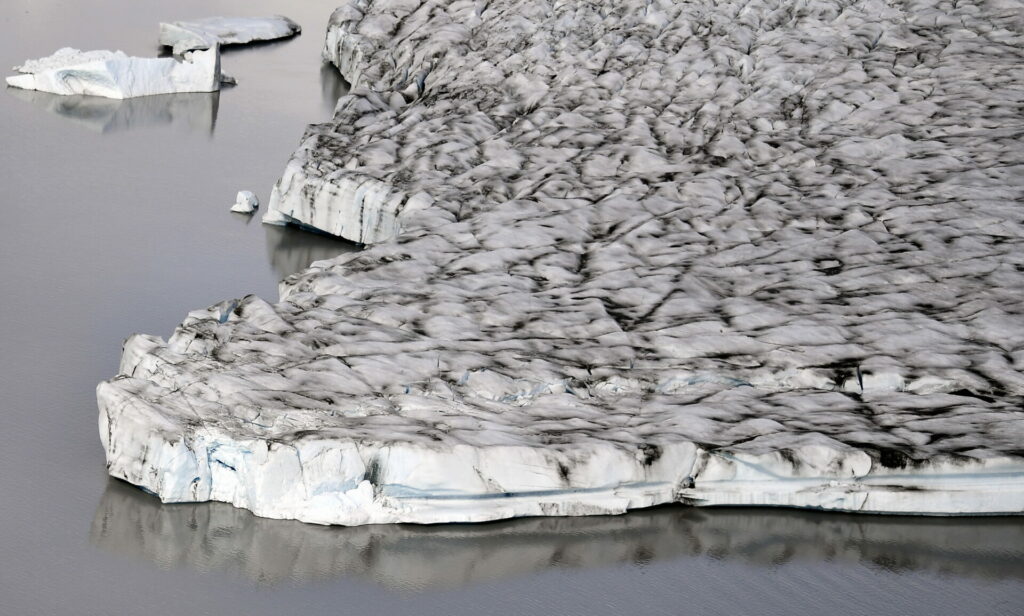One-third of UNESCO World Heritage glaciers will disappear by 2050 "regardless of the climate scenario," a new report by the UN's educational, scientific and cultural organisation warned on Thursday.
The study assesses 18,600 glaciers covering a total of 66,000 km2 spread over 50 World Heritage sites or 10% of the earth's total glacier surface. These are generally found to be retreating at an accelerated rate, UNESCO warned.
"Climate change will inevitably cause glaciers in World Heritage sites to keep retreating and many will even disappear. These glacial retreats will impact biodiversity and human societies," the report read. Around half of all sites could almost entirely disappear by 2100 in a business-as-usual emissions scenario.
By combining satellite data and projections at the site level, researchers found that World Heritage glaciers are melting at a rate of 58 billion tonnes of ice each year – the amount of water used annually by France and Spain combined. This in turn causes global sea levels to rise. The report added the situation here was "representative" of the state of the world's glaciers.
In Europe, the glaciers of the Pyrenees-Mont Perdu in France and Spain are expected to disappear, as are those of the Dolomites in Italy.
Impact of glacier retreats
Aside from affecting the Outstanding Universal Value of the UNESCO sites, melting glaciers have a devastating impact on life on earth as well as the planet's resilience against climate change.
As sea levels rise, coastal erosion and storm surges of a greater magnitude occur. Warmer ocean temperatures result in more frequent and intense coastal storms like hurricanes and typhoons.
Researchers noted that this will have negative impacts on agricultural production and food security. Demand for water will be increased and cultivated land will expand to feed the needs of a growing population.
Related News
- World's cultural and natural heritage threatened by climate change
- 'Picture of warming world': Europe is fastest warming continent globally
Hydropower production will also be impacted: "An estimate from one of Peru's largest hydropower plants, Canon del Pato, suggested that there could be a 15% reduction in the plant’s energy production in the case where glaciers disappear completely," the report reads.
Finally, glacier changes will also lead to plant and animal species shifting to adapt to the changing habitat, if not becoming extinct altogether.
Save remaining two-thirds
In the report, UNESCO highlighted that the two-thirds that will not necessarily disappear "could be saved if we limit global warming to 1.5°C." Yet this will require drastically cutting emissions, something that the world has been making few qualitative steps towards.
The organisation called for an "international fund to monitor and preserve glaciers" to bridge the funding gap and successfully implement actions to support comprehensive research.

